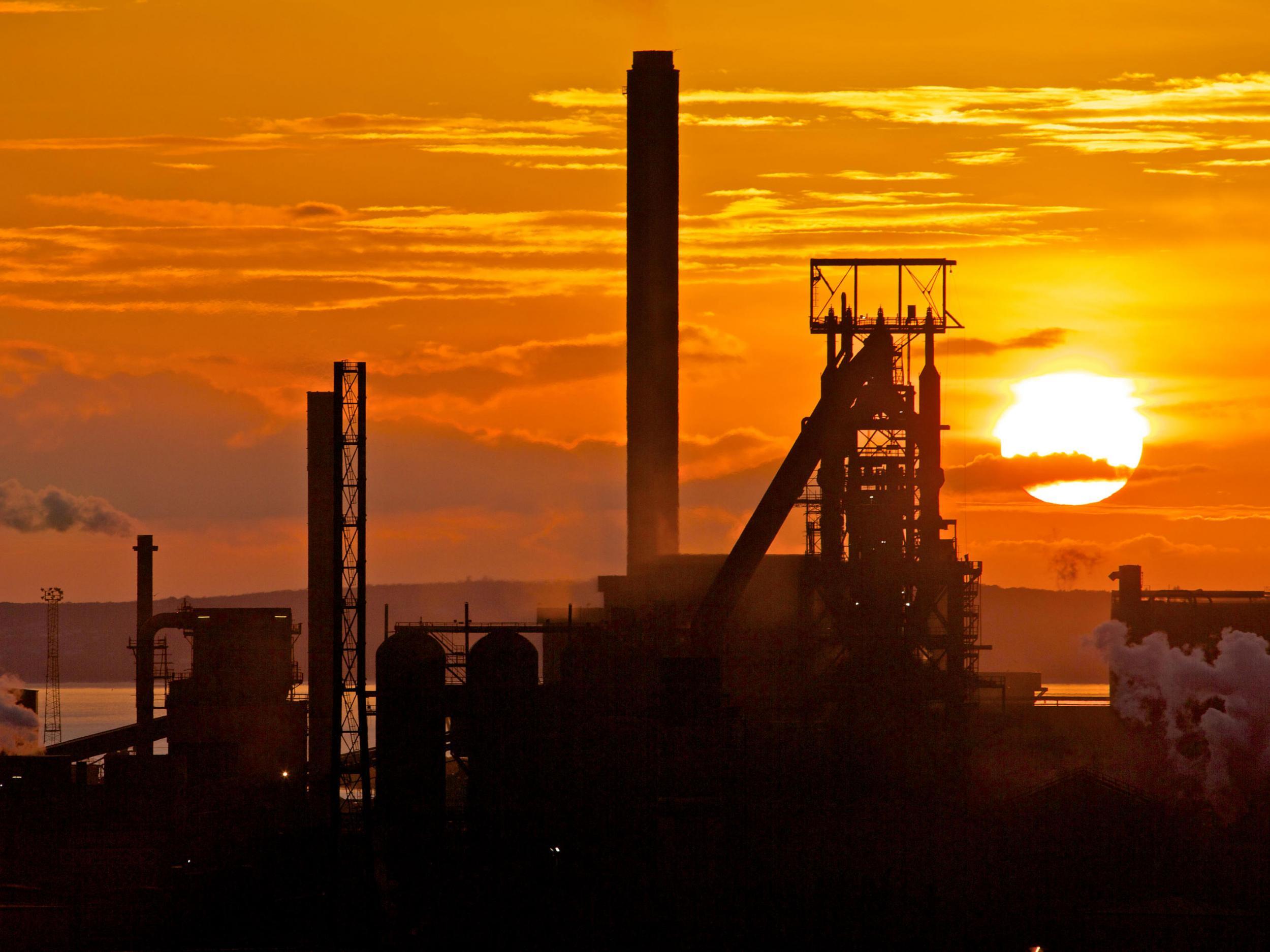Critics blame efforts to tackle climate change for the decline of British steel. They're wrong
The real problems faced by the steel industry cannot be solved by using it to score points in another debate

Your support helps us to tell the story
From reproductive rights to climate change to Big Tech, The Independent is on the ground when the story is developing. Whether it's investigating the financials of Elon Musk's pro-Trump PAC or producing our latest documentary, 'The A Word', which shines a light on the American women fighting for reproductive rights, we know how important it is to parse out the facts from the messaging.
At such a critical moment in US history, we need reporters on the ground. Your donation allows us to keep sending journalists to speak to both sides of the story.
The Independent is trusted by Americans across the entire political spectrum. And unlike many other quality news outlets, we choose not to lock Americans out of our reporting and analysis with paywalls. We believe quality journalism should be available to everyone, paid for by those who can afford it.
Your support makes all the difference.The revelation that steel giant Tata intends to look for a buyer for its UK business was deeply worrying for its workforce and threatens the future of the industry. Some commentators were quick to blame the steel industry’s difficulties on high energy prices and the UK’s policies on climate change. Such claims are highly misleading.
The difficulties facing the steel industry arise overwhelmingly because of overcapacity in world markets, particularly in China. This has led to a fall in steel prices of 60 per cent in the last four years from a peak of over 5,000 yuan/tonne in 2012 (about US$800/tonne) to under 2,000 yuan/tonne at the end of 2015.
Globally, we’ve seen plant closures and reduced steel production, including in China. Production of steel fell on every single continent in 2015, according to the World Steel Association. The impact on the UK steel industry has been compounded by a strengthening of the pound of around 15 per cent in the two years to the end of 2015.
Energy costs are an important, but lesser, factor in the equation. The proportion of the cost of steel attributable to energy costs varies depending on the type of steel and the efficiency of the plant. But according to analysis by the Committee on Climate Change, around 6 per cent of production costs for UK blast furnace operation are due to electricity costs.
After exemptions and compensation granted to the steel industry are taken into account, then perhaps up to 2 per cent of the total costs of steel production at Port Talbot are due to low-carbon policies. Clearly, this is still relevant, but it is of a different order of magnitude to the impacts of falling steel prices and sterling appreciation.
The question that now arises is this: how might new steel plant owners succeed where others have failed?
There is growing evidence that tackling climate change provides opportunities for industries and countries around the world. The UK Government undertook an extensive exercise with energy-intensive industries to map out how they can adapt to the changing competitive environment – essentially, the challenges and opportunities that come with tackling climate change.
In developing the UK’s future industrial base it is clear that there is no climate benefit in closing industry in the UK if the associated emissions are simply produced elsewhere, with increased imports and at the expense of UK jobs. But we should note that industrial re-location as a result of climate policy has been shown to be very small. The real question is, what are the opportunities for UK industry in a world that is acting together to reduce greenhouse gas emissions?
The answer lies in correct diagnosis of the current problems, instead of trying to use them to score points in wider debates. It also lies in understanding the nature of the UK’s competitive advantage and the jobs, skills and investment needed to realise it.
New investors in UK industry are looking at the world as it will be in 2030 and beyond. Given the UK’s technological strengths and creativity, if we focus on new technologies, opportunities and ideas, we are likely to find a strong future in the transition to a low-carbon economy. Facilitating that transition is the key to serving both current, and future, UK workers.
Lord Stern is chair of the Grantham Research Institute on Climate Change and the Environment at the London School of Economics and Political Science. Lord Deben (John Gummer) is chair of the Committee on Climate Change
Join our commenting forum
Join thought-provoking conversations, follow other Independent readers and see their replies
Comments